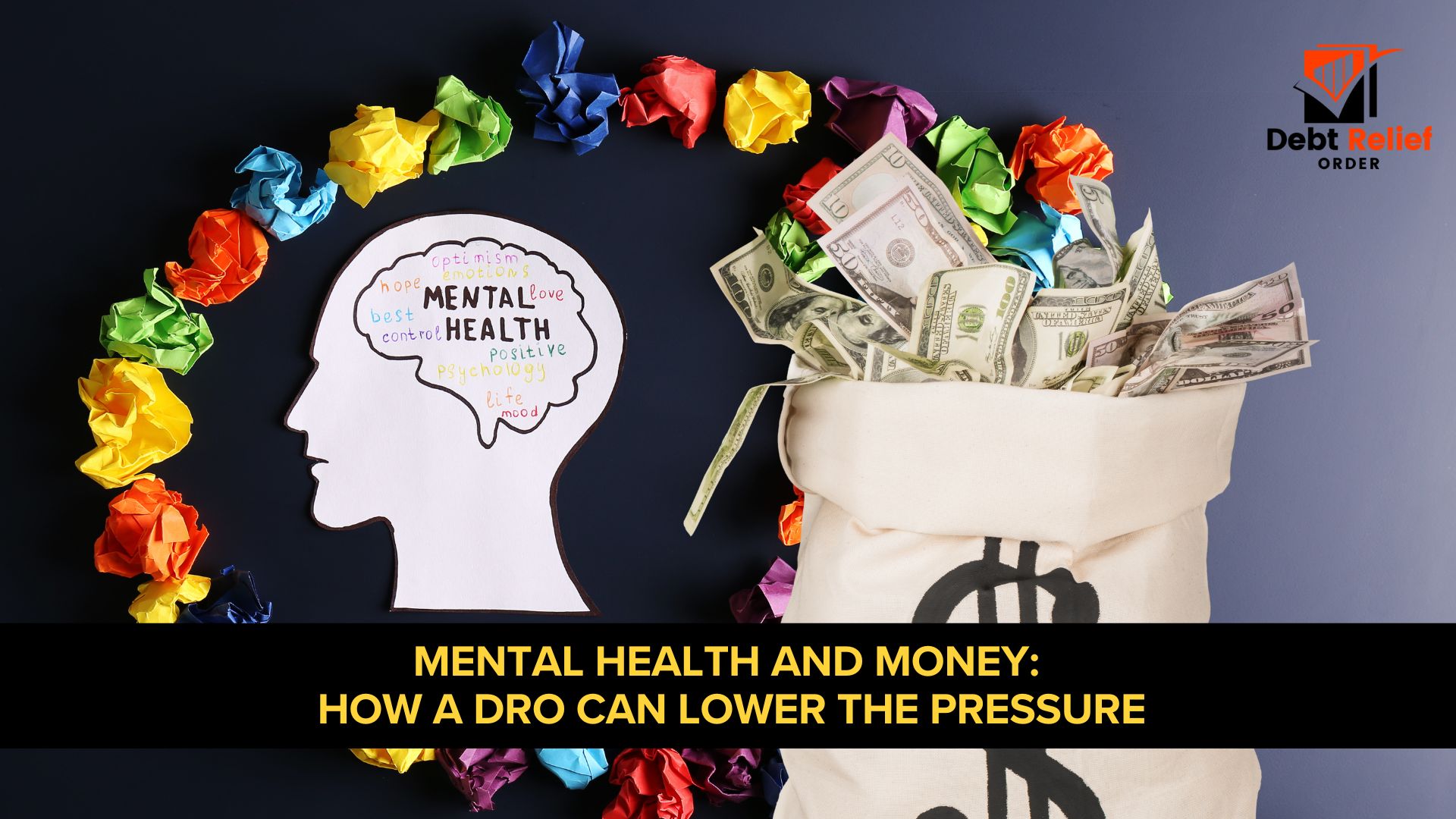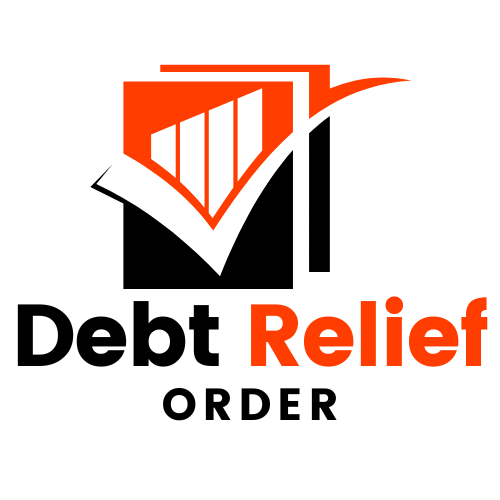
Money problems and mental health affect each other in a tight loop, so that a clear debt solution can ease both. Constant calls, letters, and fees raise stress and make the choice harder. A Debt Relief Order reduces noise and gives a simple plan for the next year. Small steps become easier when pressure falls and rules are clear. With that in mind, let’s start with what a DRO actually changes for day-to-day stress.
How does a Debt Relief Order reduce stress and anxiety right away?
A DRO reduces stress by pausing creditor contact, stopping enforcement, and freezing qualifying debts for twelve months. The order creates a calm space so you can sleep, eat, and think more clearly. One process replaces many calls and letters, which lowers panic: written updates and simple timelines cut decision fatigue. Once you feel steadier, it is easier to check if you qualify.
Am I eligible for a DRO, and what are the key rules to meet?
You are eligible if your total qualifying debt, assets, and disposable income all fall within set limits for England and Wales. You must live here and not be in bankruptcy or an IVA at the same time. Your spare income after reasonable costs must be very low. Your assets must be modest and listed in full. If that sounds like you, the next step is to see which debts can go in.
Which debts can go into a DRO and which are excluded?
Qualifying debts include credit cards, overdrafts, personal loans, council tax arrears, utility arrears, and many unpaid bills. Some debts are excluded, such as student loans, certain fines, and ongoing maintenance. You should list every qualifying creditor so that collection stops across the board. Clear lists help prevent stray letters that trigger worry. With debts mapped, assets come next.
What counts as assets and will everyday items affect my application?
Assets include cash, savings, a vehicle, and valuable items you own, while normal household goods are usually ignored. Modest work tools and a basic vehicle can often be kept within limits. You should avoid gifting or selling items for less than their value before you apply. Honest values prevent problems later and keep stress low. After assets, income, and costs, the last piece is decided.
How is disposable income worked out, and why does it matter for mental health?
Disposable income is what is left after tax, rent, food, travel, utilities, and other essential costs. If little or nothing is left, a DRO may fit and remove constant payment demands. Realistic budgets protect food and medicines, which help mood and sleep. A fair plan stops guilt about missed payments. With the numbers clear, you can look at the steps to apply.
How do I apply for a DRO, and who helps me complete the forms?
You apply through an approved intermediary who checks details, uploads documents, and submits the case online. You provide photo ID, bank statements, bills, and a full creditor list. There is a small fee, and support to fund it may be available. Your contact can schedule calls and use written updates if that feels calmer. With support in place, timing is the next question.
How long does a DRO take from the first chat to the order being made?
Many cases move from the first chat to a decision within a few weeks when papers are ready. Delays often come from missing statements or unclear balances. While you wait, you can ask for written communication to keep things steady. You will get a notice when the order is made, and creditors should stop contacting you. With the order active, it helps to know about restrictions.
What restrictions apply during a DRO, and will they affect daily life?
During a DRO, you must not take credit over a set amount without telling the lender, and you must follow trading name rules. You should keep to simple banking and avoid new debt. Most daily tasks carry on as normal, which helps routine and mood. If you are unsure, ask your contact to confirm in writing. With rules understood, people often ask about priority bills and bailiffs.
What happens to enforcement, CCJs, and bailiffs after a DRO is made?
Enforcement for included debts should stop, and new interest on those debts should not accrue. CCJs linked to included debts are covered by the order. If an agent calls in error, you can show your DRO notice and ask them to leave. Report any contact to your intermediary so they can follow up. With pressure off the door, you can think about your credit file.
How will a DRO affect my credit file, and what happens after six years?
A DRO stays on your credit file for six years and makes new borrowing hard for a time. You can still run a basic account, pay bills on time, and start tiny positive markers later. After six years, the DRO drops away, and patient habits help rebuild. Stable payments and a small emergency fund make a real difference. Alongside credit, daily well-being also needs care.
What simple steps support mental health while the DRO is in place?
Short routines for sleep, food, and walks give your mind steady signals. Write down one small task per day and tick it off to reduce overwhelm. Pick written updates over phone calls if that feels calmer. Share a simple money plan with someone you trust. With self-care steady, you can prepare for discharge.
What changes should I report during the twelve months, and why?
You should report big income rises, cash gifts, or new assets because they can affect the order. Quick updates prevent confusion and keep protection in place. Keep notes of any one-off payments so they can be explained. Honest updates avoid surprise letters that undo progress. With reporting clear, the finish line is in sight.
What happens after twelve months, and how do I stay on track?
After twelve months, most qualifying debts in the DRO are written off, and you are discharged. You can keep your budget, file paperwork on time, and build a small buffer. A basic savings pot and steady bill payments help mood and money. Review your bank account each month to keep habits simple. With discharge done, you may want ongoing, friendly help.
Can a Debt Relief Order help me apply and keep things calm?
Yes, Debt Relief Order can check eligibility, prepare documents, submit the application, and update you in the format you prefer. We can schedule calls, use plain emails, and keep steps small and clear. We help list creditors, map assets, and confirm disposable income. We also offer gentle aftercare so habits stick. For those who are self-employed, it may help to learn more about Debt Relief Orders for sole traders to understand how the process works in practice. With support ready, a summary brings the key points together.
What is the best next step if money stress is harming your mental health?
The best next step is to note your income, essential costs, and all creditors, then ask for a fast eligibility check. If you meet the limits, a Debt Relief Order can pause contact, stop enforcement, and write off debts after twelve months. If you do not fit the rules, a simple plan can still steady bills and protect your well-being. Clear steps and calm updates reduce anxiety and help you sleep. When you feel ready, you can start a conversation with Debt Relief Order and take one small step toward a quieter mind.
